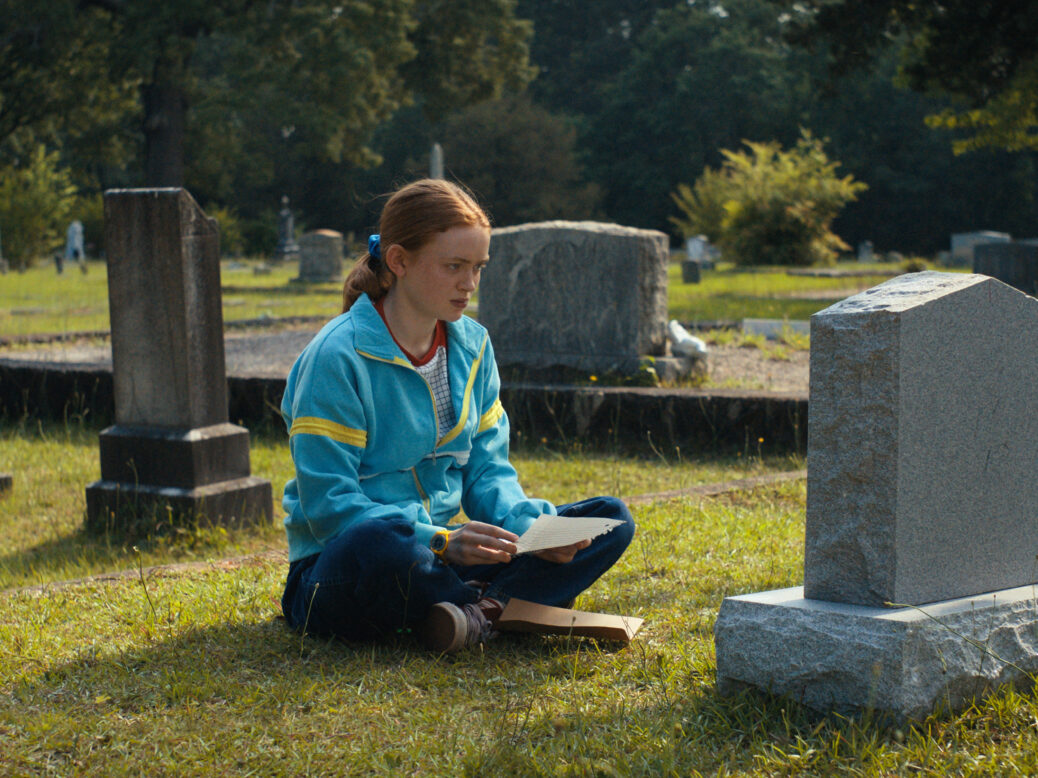
Since Stranger Things first hit Netflix in 2016, the show has transitioned from break-out cult hit to mainstream classic. Now in its fourth season, the second chapter of which is released on 1 July, the show retains the blend of Eighties nostalgia, gruesome horror and Dungeons & Dragons fantasy that won over audiences in the beginning. But the mood has changed. Its core cast of child stars are now teenagers, with broken voices, grown-out hair and sexual urges. There is an even bigger budget and higher spec production values: Netflix reportedly spent $30m per episode, a figure reflected in the viewing figures (a collective 620 million hours of Stranger Things was watched within two weeks of season four’s first release). And most importantly, the show’s unexpected longevity has forced it to expand its horizons. The Demogorgon met its demise in season two; and those meddling kids appeared to destroy the entrance to the Upside Down in season three. Sure, we’d all like some new monsters – but monsters alone aren’t going to cut it.
Stranger Things has therefore turned to a topic appropriate for the Gen-Z audience who have grown up with it: trauma, which enables new, even scarier monsters to be imbued with metaphor. Season four’s antagonist is a creature that preys on and possesses teenagers who have experienced extreme distress. First, they experience horrific flashbacks. Soon, these morph into gory, paranoid visions – be it of a loving parent turned cruel, a car accident or a bereavement – before they are brutally killed by the monster, who breaks their bones and rips out their eyes.
The allegory is not exactly subtle, but Stranger Things’ inclusion of these new horrors – those of the mind – is seamless and deft. Younger generations’ newfound infatuation with Kate Bush following the show’s use of her 1985 song “Running Up That Hill” has been well-documented, but Stranger Things season four also appeals to Gen Z thanks to its head-on handling of trauma, a familiar and perversely seductive theme for those who have grown up online. Social media preaches that it is crucial to interrogate and probe your past in order to expurgate traces of negativity and realise the true self. Less cynically, society is far more accepting than it’s ever been of those suffering mental health problems.
The theme of trauma is familiar territory for fantasy. The Harry Potter series, for example, is full of similar metaphors, from the scar on Harry’s forehead to the creatures only visible to those who have seen death. Children and adolescents rely on stories to begin to grapple with these concepts. Harry’s Voldemort-induced nightmares are more engaging than a textbook outlining complex psychological concepts; exploring such ideas through fiction makes them less frightening than they might be if found through a prematurely acquired copy of The Body Keeps the Score.
Yet for today’s adolescents, these are not new concepts, discovered for the first time through teen fiction. Mental health in general, and trauma in particular, are key topics in the never-ending stream of relatability-driven online content. For worthy, deeply confused millennials, there are countless Instagram psychology accounts distilling complex and often uniquely personal ideas into simplified infographics. And for Gen Z there is “TraumaTok”, a TikTok hashtag that has accumulated 1.3 billion views, in which users analyse behaviour in relation to trauma and “trauma response”. Post-traumatic stress disorder was only identified as a psychiatric condition in 1980, greatly influenced by the effects of the Vietnam War on veterans; in 2022 “trauma” is such an overused term that it has become the subject of ironic online memes.
On “TraumaTok” users often work backwards, identifying “three behaviours that may be a trauma response”. And so if you struggle with making decisions, or are perfectionistic or people-pleasing, you may be forgiven for thinking that you must, therefore, be traumatised. Social media thrives on sweeping, universally relatable statements – but such rhetoric also leads to the pathologising of experiences that may or may not have been traumatic, and an altered sense of self that may or may not be helpful.
Fictional narratives enable us to view these topics with more nuance than the internet does. Increasingly, creators are exploring them not just in relation to one character – such as the orphaned Harry Potter, or even “crazy”, anorexic Cassie in Skins – but across entire shows. Euphoria, another Gen-Z favourite, explores how events in childhood impact adolescence and early adulthood. The protagonist, Rue (Zendaya), struggles with addiction in the wake of her father’s death; we gradually piece together the story through flashbacks as she comes to terms with what happened. Rue’s best friend Jules (Hunter Schafer) is taken back to her childhood with her own alcoholic mother by Rue’s behaviour, and we learn of Jules’s experiences in psychiatric institutions. Even the popular kids are shown to have been formed by their past struggles and family dynamics: the chaotic, beautiful Cassie (Sydney Sweeney) needs constant male attention because her father – also an addict – left when she was young.
Stranger Things, no longer just a show about monsters or the retro novelty of cassette Walkmans, is exploring within its highly stylised parameters what its audiences really care about: the depths of the self and the complexities of human experience. But unlike what has come before, it is not doing so to explain anything. This is a language its fans already understand.
[See also: Kate Bush’s “Running Up That Hill” proves it – the best songs are timeless]
This article was originally published on 30 June 2022.
This article appears in the 06 Jul 2022 issue of the New Statesman, The Last Days of Boris Johnson





